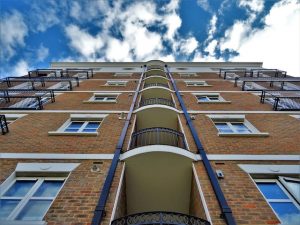
Statistics indicate that approximately 29.6% of Brits consider property investment as profitable. Indeed, as a property owner, you have more control over the investment compared to other investments, such as stocks, where control is limited. Also, property investment can be leveraged through a mortgage, allowing the investor to control a larger asset with a smaller investment. Fortunately, several property investment ideas are available, including the following.

One benefit of investing in a residential rental property is the potential for rental income. This income can provide a steady cash flow for the investor, which can help to cover the cost of the mortgage and other expenses related to the property. Moreover, they can appreciate over time, offering investors a potential source of capital gains when they sell the property. This appreciation can be due to various factors, including market trends, economic conditions, and property improvements. Unlike stocks or bonds, rental properties are tangible assets that investors can physically see and touch. This can provide a sense of security for investors, knowing that their investment is a real, tangible asset.
Despite these benefits, you need to consider certain factors to ensure success. For instance, research the local real estate market to identify areas with strong rental demand, low vacancy rates, and potential for appreciation. You also want to determine how much you can afford to invest in a rental property, considering the property’s cost, mortgage payments, insurance, taxes, and property management. You’ll also find it helpful to utilise online listings and real estate agents to find properties that meet your investment criteria. Conduct a thorough inspection and analysis to determine the property’s potential for rental income and appreciation.
Commercial property refers to real estate used for business purposes, such as offices, retail stores, industrial facilities, and apartment buildings with 5 or more units. It is typically owned by investors or businesses to generate income through renting out the space to tenants. There are various reasons to invest in commercial properties. They typically generate rental income, providing a steady cash flow stream. Not only do they appreciate value, but they also offer tax benefits, such as depreciation deductions and real estate tax deductions. Also, The demand for commercial properties is typically strong, as businesses need space to operate. This can provide stability and reduce the risk of vacancy.
Before investing, study the commercial real estate market, including trends, demand, supply, competition, and comparable properties. You can also consider the location, accessibility, demographics, and prospects of the area. While at it, inspect the property and research its history, including zoning, taxes, and environmental issues. If you’re new to the process, consult with a real estate attorney, accountant, and commercial real estate agent to help guide you through the process.

Raw land investment refers to purchasing undeveloped land to hold it long-term for resale, development, or speculative purposes. Indeed, raw land appreciates as its supply is limited and demand increases. And there are various types of raw land you can invest in. For instance, agricultural land investment involves purchasing farmland for agricultural purposes such as farming, grazing, or forestry. Likewise, residential land investment involves purchasing land for future residential development. This type of investment can be profitable if the land is located in an area with high demand for housing and if zoning laws permit residential development. You can also consider commercial land, recreational land, timber land, minerals and natural resources, and so on. You can also invest in woodland if you’re keen on sustainability and natural resource preservation.
However, before investing in raw land, consider factors such as proximity to population centres, transportation, zoning laws, and natural resources. Consequently, evaluate the topography, soil quality and potential for flooding, landslides or other natural hazards. While at it, investigate potential environmental hazards, such as contaminated soil or water. Experts also advise checking for clear title, liens or deed restrictions that could affect future development or resale.
Fix and flip is a real estate investment strategy where an investor buys a property that needs repairs, renovates it, and then sells it for a profit. With a well-executed renovation and proper market timing, you can make a significant profit on the sale of a flip property. Also, it can provide investment opportunities in a down properties market, as they can be purchased at a discount and then sold for a profit after renovation. Fix and flip can diversify an investment portfolio, reducing risk and exposure to market volatility.
However, fix and flip is not without its challenges and risks, and it is important for investors to thoroughly research the market and carefully plan their investments. Hiring a knowledgeable real estate agent and contractor, conducting proper due diligence, and having a solid understanding of the renovation and sales process can help minimise risks and maximise success.

House hacking refers to purchasing a multi-unit property, living in one, and renting out the others to generate income to cover a portion or all of your housing expenses. This way, you can reduce your monthly housing costs while getting a positive cash flow each month, as rental income exceeds monthly housing expenses. This can help you build wealth over time and provide financial stability. Moreover, as you make mortgage payments and the property appreciates, you’ll build equity in the property, which can be used as a down payment for future real estate investments or as a source of cash in retirement. House hacking provides an opportunity to gain valuable experience in property management, which can help you make informed decisions about future investments. Multi-unit properties have the potential for even higher appreciation due to their rental income, so keep this in mind.
To get started, look for multi-unit properties in areas with strong rental demand and favourable real estate market conditions. Consider factors such as population growth, job growth, and local economic conditions. As a tip, work with a real estate agent, mortgage broker, and home inspector to help you find, evaluate, and purchase a property.
